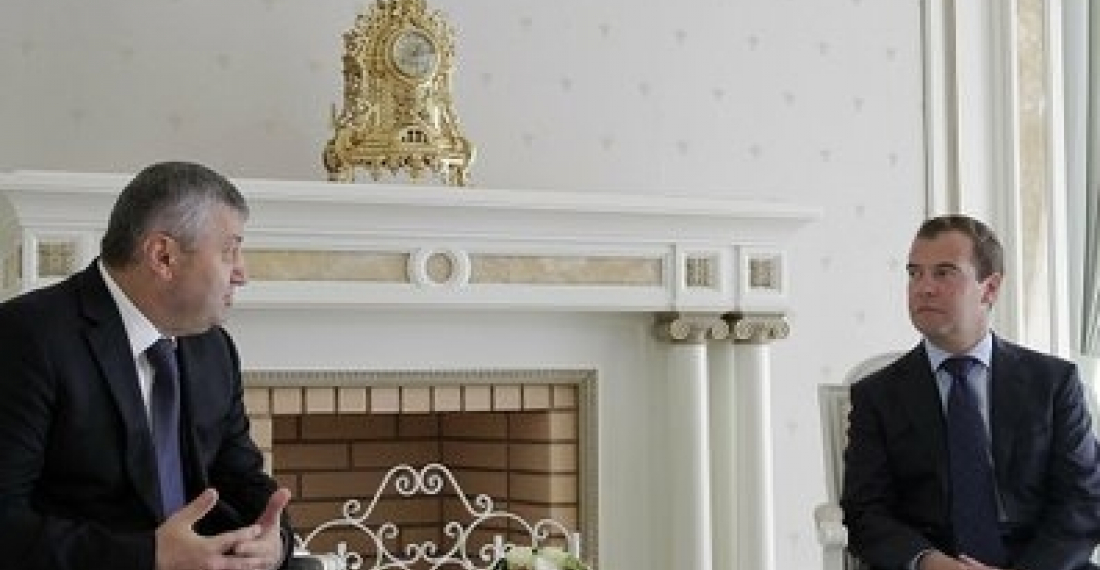Welcoming Edward Kokoiti, the Russian President reminded that tomorrow will be three years since Russia’s recognition of South Ossetia’s and Abkhazia’s independence. "I sincerely congratulate you because it was a truly great event for the South Ossetian people. Three years have passed since then, the country has been developing and has its own achievements as well as difficulties that always go hand in hand with development. So let us talk about strengthening bilateral relations and international issues that are associated with your country’s progress".
Russia's recognition of the two territories that seperated from Georgia after the end of the USSR has remained controversial and has found little support in the international arena, with only a handful of marginal countries following the Russian example. Significantly none of the other former USSR republics followed the Russian example.
Because of its size, geographic location and small population South Ossetia remains by far the weaker of the two entities, and its viability as an independent state is questioned even in Russian official circles. Some have suggested it should unite with North Ossetia, but since that means joining Russia and changing the boundaries of the Russian Federation that preposition in the mind of many, opens pandora's box, with many possible consequences.
photo: President Medvedev meets the South Ossetian leader in Sochi (photo courtesy of the Press Service of the President of Russia)
source: commonspace.eu newsroom, with input from kremlin.ru







